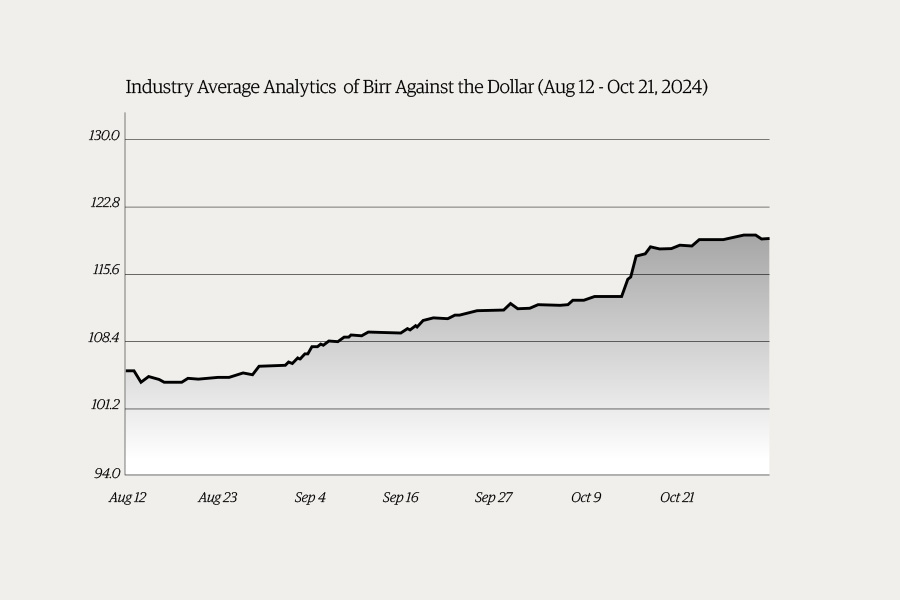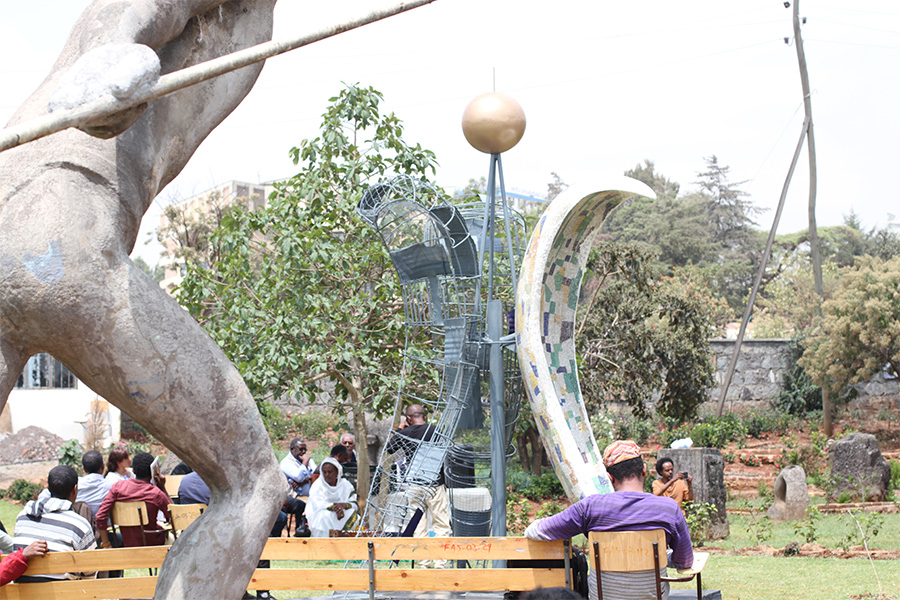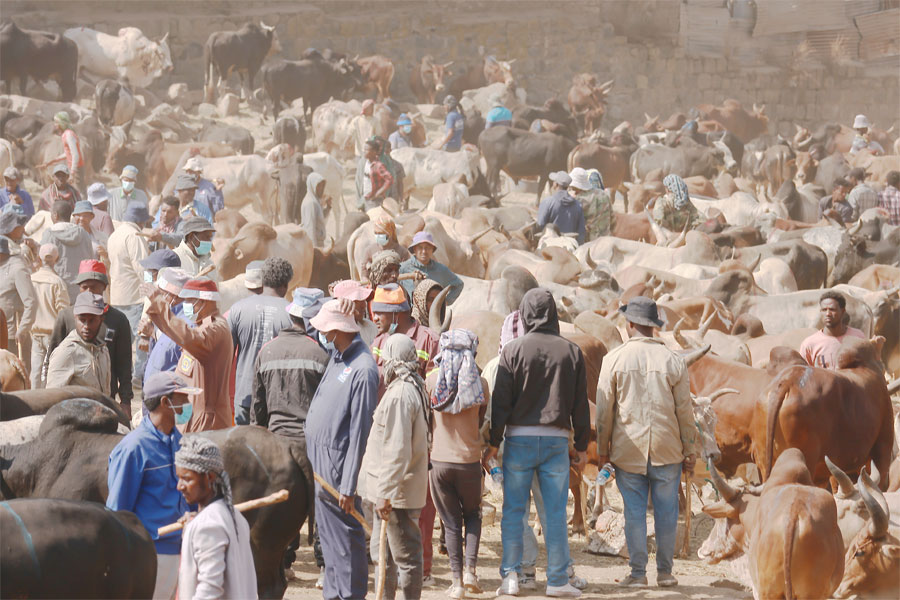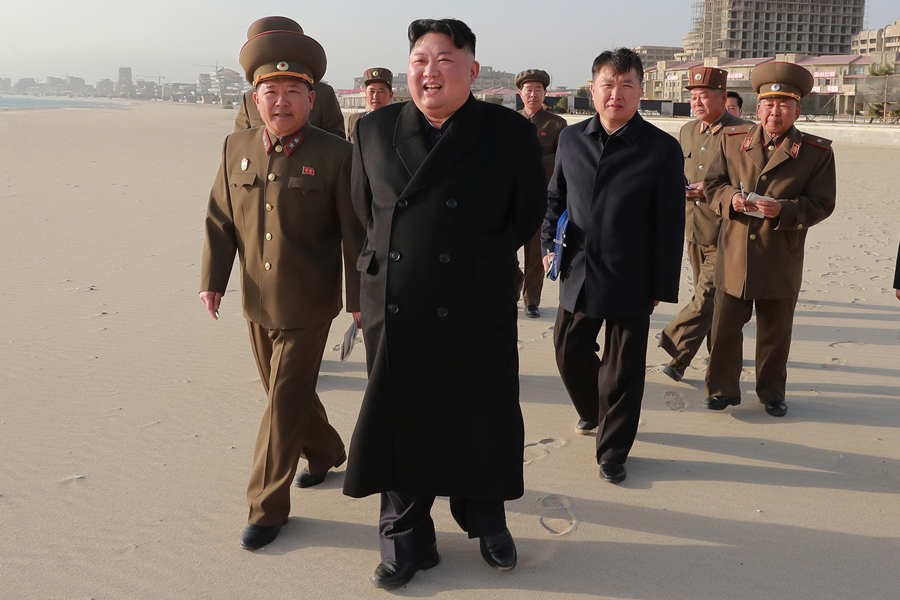
Viewpoints | Jan 05,2019
Dec 25 , 2018
By
The uncertainties of political transitions is undeniably unforgettable for those who live through them. The sheer number of unusual events taking place inside the country since Prime Minister Abiy Ahmed (PhD) came to power has made the past eight months fly by in a heady daze.
Around Tor Hailoch last Wednesday, I was stuck behind the funeral procession for former President Girma WoldeGiorgis that proceeded from his house to the Millennium Hall in Bole. The streets were cordoned off by city and federal police who were instructing pedestrians to restrict themselves to the walkways.
But it was not that easy for the police to enforce that edict. Pedestrians kept flaunting orders, usually standing up to the police and, in some cases, getting their way. After the procession had passed by and traffic flow had resumed, I came upon a woman who was berating a police officer for ignoring her when she asked for directions.
“It is your job,” she almost screamed. “I am going to speak to your superiors.”
Some may find the attitude of the pedestrians in Tor Hailoch symptomatic of the problem at a national level: Ethiopians, given the opportunity to exercise their rights, will exploit them. The concept of freedom will go way over their heads and be taken to mean that they can scream “fire” in a crowded theatre, some would say.
And indeed, not all cultures and societies will respond similarly to a relaxation in the nature of the relationship between authority and the public. Some are more conservative than others, and rapid changes can create a great deal of confusion.
But it is also liberating to see how assertive toward authority citizens have become. The pedestrians on that street were a good indicator of this. They were, of course, sympathetic to the occasion - it was a funeral. But they were also waiting in the middle of a dusty street under a scorching hot sun.
More importantly, they understood that the state’s privilege can only go so far. They were aware that in keeping their part of the bargain - inconveniencing themselves - they were doing the authorities a favour. There were no illusions that a police officer can give arbitrary orders and expect complete compliance. What has often been considered the scariest part of government - the law enforcement apparatus - can be challenged, expected to respect the rule of law and citizens’ rights and be flexible.
The attitude toward authority is overdue for a revamp. Historically, it has exercised its right and more with little accountability. Challenging it has been tantamount to contempt, punishable through the various instruments of the state. The few that rose to speak out have been dealth with, in some cases, with the full might of the state. This is why political transformations come only once in decades, because the few cannot take on authority; the majority has to join in, which takes time, and happens in the form of a revolution.
Times have changed, and we may be witnessing a historical moment where the few can indeed succeed in challenging officials in public offices and law enforcement officers to keep their part of the bargain. This is because individuals now have a far better chance of being heard, and the majority has become better informed of its rights and duties.
Indeed, there is a case to be made for the argument that the masses are less enthusiastic about their duties than their rights. But the major contributors of this are the sheer uncertainty of the future of the country and the inability of the government to retain its monopoly over violence.
Ensuring the security and stability of a nation is the mandate of the government. This may lead some to raise the classical argument of security versus freedom, the former of which has been favoured by successive governments.
But that is a poor argument. The two are not mutually exclusive, and the only governments that opt for security over freedom are the kind that are incapable of affording their citizens both while at the same time being unwilling to give up power to someone that can. If this can change, it would be one big step in Ethiopia’s political maturity.
PUBLISHED ON
Dec 25,2018 [ VOL
19 , NO
974]

Viewpoints | Jan 05,2019

Viewpoints | Jan 07,2024

Radar | May 31,2020

My Opinion | Jul 27,2024

Money Market Watch | Nov 03,2024

Radar | Mar 14,2020

Agenda | Jan 07,2024

Verbatim | Sep 14,2019

Viewpoints | Dec 02,2023

Advertorials | Jan 02,2020

My Opinion | 131819 Views | Aug 14,2021

My Opinion | 128203 Views | Aug 21,2021

My Opinion | 126147 Views | Sep 10,2021

My Opinion | 123767 Views | Aug 07,2021

Dec 22 , 2024 . By TIZITA SHEWAFERAW
Charged with transforming colossal state-owned enterprises into modern and competitiv...

Aug 18 , 2024 . By AKSAH ITALO
Although predictable Yonas Zerihun's job in the ride-hailing service is not immune to...

Jul 28 , 2024 . By TIZITA SHEWAFERAW
Unhabitual, perhaps too many, Samuel Gebreyohannes, 38, used to occasionally enjoy a couple of beers at breakfast. However, he recently swit...

Jul 13 , 2024 . By AKSAH ITALO
Investors who rely on tractors, trucks, and field vehicles for commuting, transporting commodities, and f...

Jul 5 , 2025
Six years ago, Ethiopia was the darling of international liberal commentators. A year...

Jun 28 , 2025
Meseret Damtie, the assertive auditor general, has never been shy about naming names...

Jun 21 , 2025
A well-worn adage says, “Budget is not destiny, but it is direction.” Examining t...

Jun 14 , 2025
Yet again, the Horn of Africa is bracing for trouble. A region already frayed by wars...

Jul 6 , 2025 . By BEZAWIT HULUAGER
The federal legislature gave Prime Minister Abiy Ahmed (PhD) what he wanted: a 1.9 tr...

Jul 6 , 2025 . By YITBAREK GETACHEW
In a city rising skyward at breakneck speed, a reckoning has arrived. Authorities in...

Jul 6 , 2025 . By NAHOM AYELE
A landmark directive from the Ministry of Finance signals a paradigm shift in the cou...

Jul 6 , 2025 . By NAHOM AYELE
Awash Bank has announced plans to establish a dedicated investment banking subsidiary...